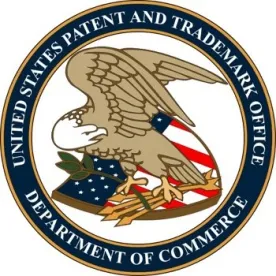Andrei Iancu, the Under Secretary of Commerce for Intellectual Property and Director of the USPTO, believes that the U.S. needs a strong patent system in order to excel and thrive in the global economy. He has made strengthening the U.S. patent system a core part of his mission responsibilities. Director Iancu has been travelling across the country and speaking with various patent stakeholders. As part of this effort, he met with BIOCOM’s Board of Directors and Intellectual Property Committee in San Diego on April 18, 2019.
In a roundtable format, Director Iancu, along with John Cabeca (Director of the Silicon Valley USPTO), answered questions from BIOCOM members. The members asked about numerous topics, perhaps most notably patent eligibility, updating of the USPTO’s information technology systems, and the role of the USPTO regional offices.
Director Iancu focused on the importance of a strong patent system and protection of innovation to ensure a robust national economy in the “fourth industrial revolution.” One of Director Iancu’s favorite analogies is how data processing is today’s equivalent to grain milling in the 18th century. The third patent granted by the U.S. government was to an automated milling system, and, as Iancu pointed out, no one then or now would consider the processing of grain to be ineligible for patent protection. Why then, he asked, is the processing of data considered to be ineligible for patent protection? Just as the improvements to grain processing heralded by that early patent were fundamental to our country’s success in the first industrial revolution, improvements to data processing and to healthcare (e.g., diagnostics) will be critical for success today. Yet recent trends in patent eligibility preclude many patents in these areas in the U.S. Other countries without such restrictions on patent eligibility are gaining an advantage.
Director Iancu believes the 2019 Revised Patent Subject Matter Eligibility Guidance, issued by the USPTO in January, will help to clarify eligibility under section 101. In particular, patent applications directed to data processing are already being allowed in higher numbers than before this guidance was implemented. Yet to be seen is whether the federal courts will uphold these new patents in view of existing jurisprudence. The guidance likely will not help with certain diagnostic patents, which instead will need to wait for congressional action. Iancu referred practitioners to the recent press releases from Senators Tillis and Coons on their Section 101 patent reform framework.
Iancu also talked about last year’s Patent Application Locating and Monitoring (PALM) system outage, which led a multiday shutdown of the Patent Office IT systems, and what the USPTO is doing to avoid such shutdowns in the future. There is currently no redundancy in the USPTO system, he said. That means that any software or hardware problem could result in a shutdown of systems, especially since PALM was originally developed decades ago. The USPTO is working to modernize its systems, including adding redundant servers. It was unclear how long this process is expected to take.
Director Cabeca took a few questions from attendees, as well. He encouraged using the regional offices for examiner interviews, pointing out that they were set up to allow video conferences that were almost like being in the same room. Since a large number of the patent examining corps telework, these video conferences can be beneficial when the examiner is not available in person.





 />i
/>i

